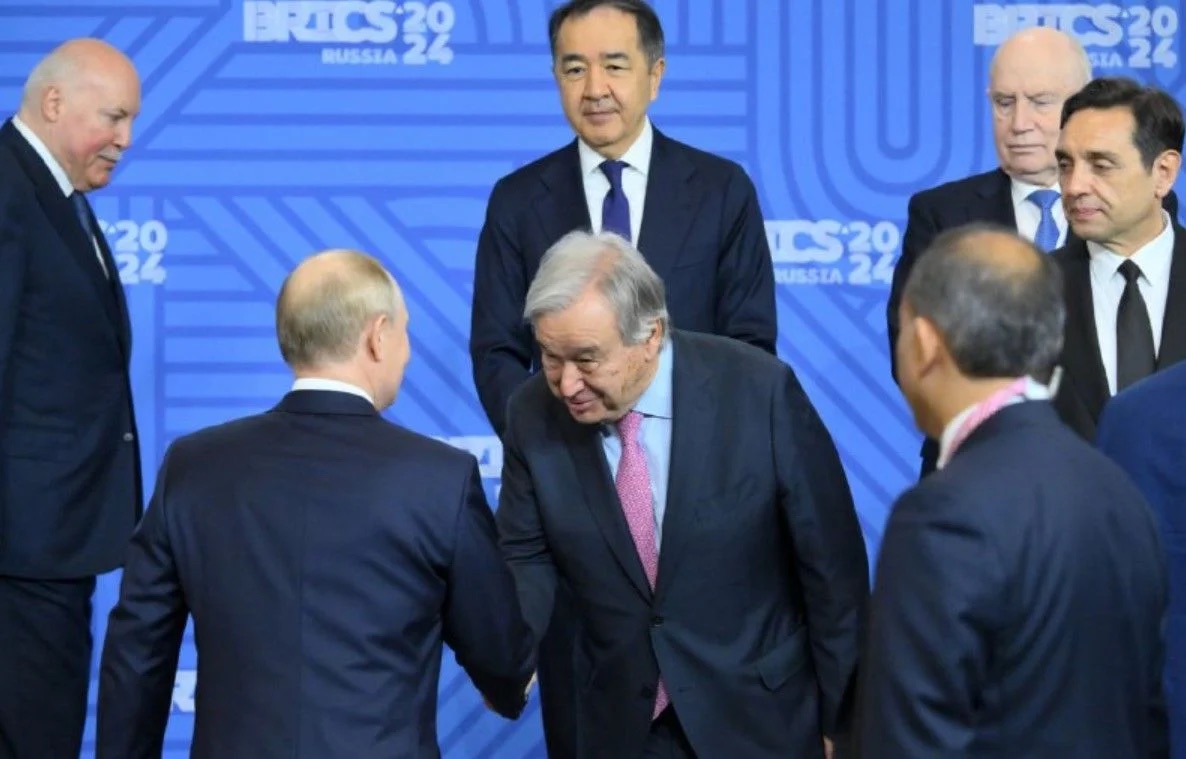The BRICS Summit in Kazan became a significant event for Russian propaganda. The Kremlin used it to demonstrate that, despite international criticism, Russia is still actively participating in international processes, and its president, Vladimir Putin, is holding numerous bilateral meetings. The main event was the visit of the UN Secretary-General, António Guterres. However, what is really hidden behind the scenes of this performance?
Is Russia a leader of BRICS?
Despite all efforts to demonstrate its significance, Russia is not actually the leader of BRICS. The leader in this organization is China, not Russia, and India is the real competitor to China. For the global media, the main event of the summit was not another meeting between Putin and Xi Jinping, but the long-awaited meeting of Xi Jinping with the Prime Minister of India, Narendra Modi. This indicates that Russia is more on the sidelines in BRICS, while China and India remain the real players.
Competitors or allies?
Despite attempts to call BRICS an “anti-Western coalition,” the bloc countries are rather competitors than allies. Most of them are interested in cooperation with the West and are not willing to support Russia on the international stage. In addition, the BRICS Bank, which was created for infrastructure investments and was supposed to be an alternative to the IMF, does not consider new projects in Russia due to risks associated with Western sanctions.
Political support for Russia: is it there?
At the summit, Russia sought political support for its aggression in Ukraine. However, the summit’s final document does not contain unequivocal statements in support of the Russian position. It only mentions that the countries welcome all mediation efforts aimed at ending the war, but no specific statement calling for the cessation of conflict or urging Russia to stop military actions was made. This reaction once again underscored that the BRICS countries are not ready to unequivocally support Russia.
Inequality of BRICS members: a block without a future?
One of the main aspects that became evident in Kazan is the inequality among BRICS members. Many countries in the bloc are not willing to expand the organization in order to preserve their influence and prevent turning BRICS into an overtly anti-Western alliance. This raises doubts about the organization’s future prospects and its ability to exert significant influence on the international arena.
Guterres’ visit: who did it help?
The visit of the UN Secretary-General António Guterres to the summit was a noticeable event, but its consequences have received mixed reactions. Criticism even came from the President of Ukraine, Volodymyr Zelensky, who expressed disappointment that Guterres ignored the peace summit organized by him in Switzerland, opting instead to meet with Putin. Western media noted that Russia used this visit to show that Putin is not isolated.
The meeting of BRICS leaders in Kazan ended without achieving significant political results. Although the summit was an important stage for Russia, it failed to provide real support for its foreign policy ambitions. In the future, BRICS leaders will meet again at the G20 summit in Brazil, but Vladimir Putin will not attend — his participation in international events is now only possible within his own country.


